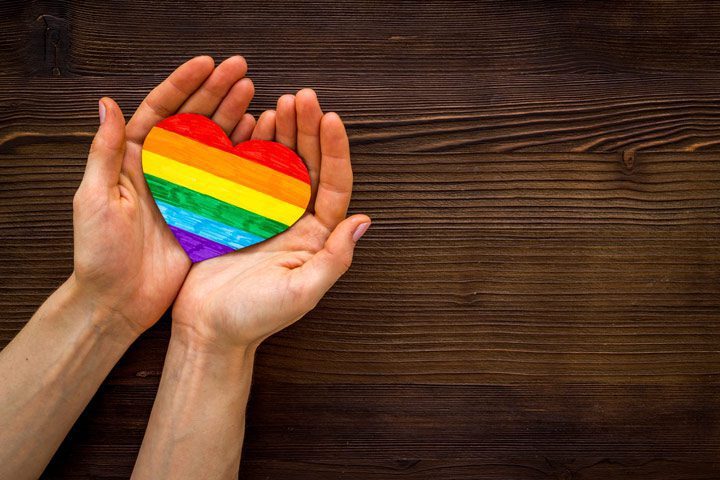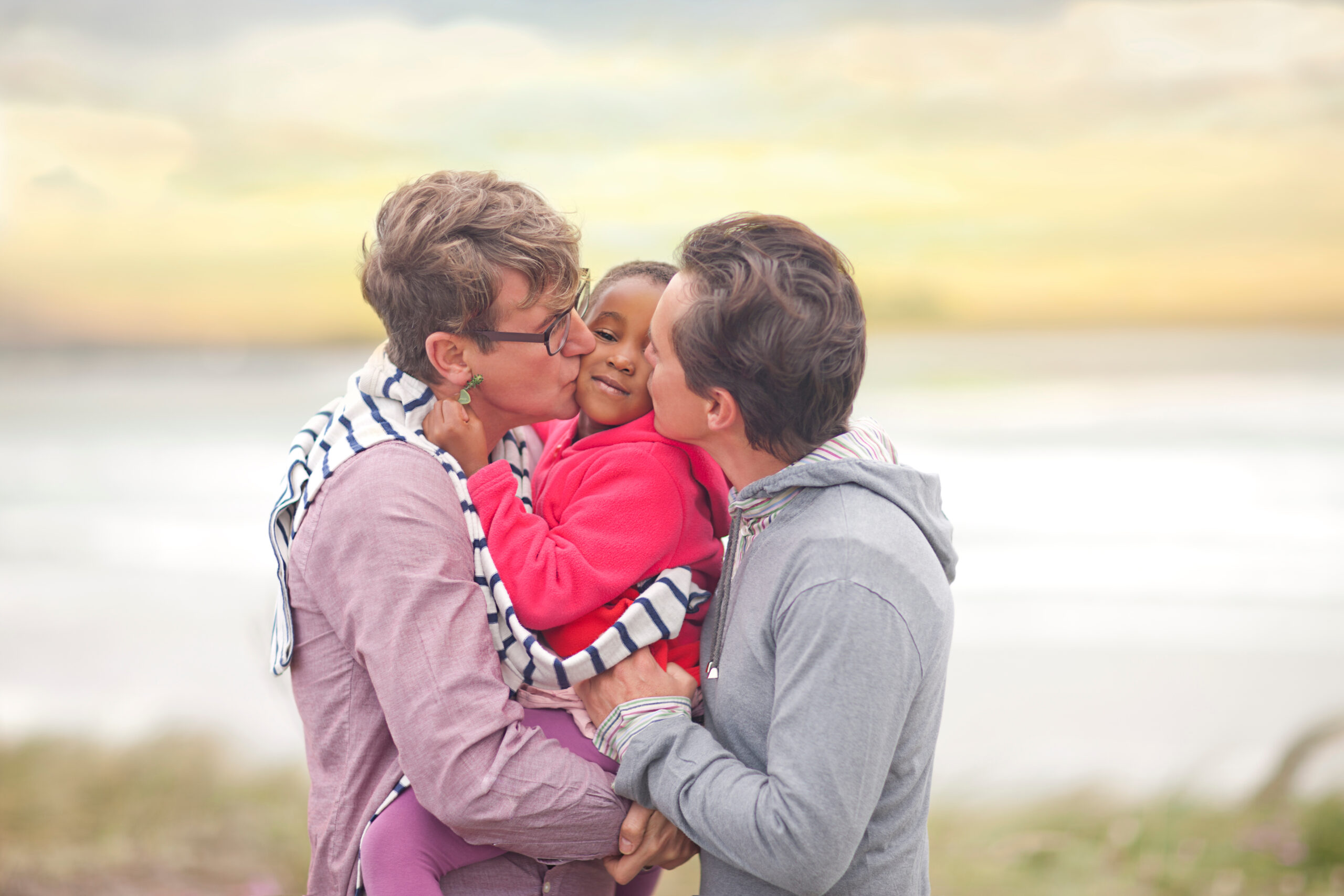
When some healthcare professionals talk about people with substance or alcohol use disorder, process addictions, mood and co-occurring disorders, trauma and PTSD, or eating disorders, they often put someone in a group based simply on symptoms. But whole person, holistic care, like what Cottonwood Tucson provides, takes into consideration an individual’s complete self and full range of experiences. Holistic care is especially important when working with people in the LGBTQ(IA+) community.
Challenges in the Life of Someone LGBTQ(IA+)
For people who consider themselves heterosexual and cisgender—which means someone who is attracted to and prefers sexual relations with someone of opposite sex, and who identifies with their birth sex—trying to understand the difficulties members of the LGBTQ(IA+) face often starts with an explanation of the acronym.
According to PFLAG, the first and largest organization for members of this community, their parents and families, and allies, it currently stands for:
- Lesbian
- Gay
- Bisexual
- Transgender
- Queer
- Intersex
- Asexual
- +More
The acronym has been updated frequently over the past 20 years to reflect evolving variations of identity and orientation. PFLAG provides definitions for these and other orientations here.
Similar to how some people find the term “addict” pejorative, PFLAG reinforces that “precise use of terms in regards to gender and sexual orientation can have a significant impact on demystifying many of the misperceptions associated with these concepts. However, the vocabulary of both continues to evolve, and there is not universal agreement about the definitions of many terms.”
A Look at History
Understanding how an individual presents themselves and the identity they have isn’t always easy for some people, especially those in the medical community. One primary reason is that for nearly 100 years in the U.S., homosexuality was considered a mental illness—later referred to by the American Psychiatric Association (APA) in the 1950s as “sociopathic personality disturbance”—until the APA issued a resolution in 1973 that stated “by itself, homosexuality does not meet the criteria for being a psychiatric disorder.”
But even that proclamation couldn’t erase decades of personal and professional discrimination, criminalization, harassment, and violence upon people in the LGBTQ(IA+) community. In fact, as this timeline from CNN explains, it wasn’t until 2003 that the U.S. Supreme Court reversed the “homosexual conduct law, which decriminalizes same-sex sexual conduct.”
The right to marry and care for loved ones, serve in the military, not be discriminated against in the workplace, avoid forced conversion therapy or harassment from religious extremism, fighting for the ability to use a restroom, and other aspects of life continue to challenge members of the LGBTQ(IA+) community. These and additional obstacles take a toll on mental, physical, and emotional health, family dynamics, relationships, and the ability to work and live as a U.S. citizen.
Addiction and Mental Health in the LGBTQ(IA+) Community
The National Institute on Drug Abuse (NIDA) reports that “only recently have federally-funded surveys started to ask about sexual orientation and gender identification in their data collections.” Results to date indicate that sexual minorities “have higher rates of substance misuse and substance use disorders than people who identify as heterosexual.”
In a 2018 report from the National Survey on Drug Use and Health, data shows that people in the LGBTQ(IA+) community have a higher misuse rate of marijuana, illicit and prescription drugs in the opiate categories, and alcohol. They frequently have more severe substance use disorder and a higher risk of HIV.
LGBTQ(IA+) individuals, especially transgender adolescents, also struggle with co-occurring disorders such as depression, self-harm, suicide ideation, eating disorders, and other issues with mental health wellness.
Finding Compassionate, Focused Care
NIDA research reports that less than 8 percent of addiction treatment centers “offer specialized services for LGBTQ(IA+) patients.” Since only about 10 percent of all people with SUD and other disorders seek professional care in the U.S., this means there are thousands of individuals needlessly suffering because they’re not assured they’ll receive high-quality, dedicated, and unbiased treatment.
The primary responsibility of treatment center staff is to address specific life and relationship concerns unique for many people in this community. For example, root causes of SUD and co-occurring disorders might develop from:
- Elements of trauma, such as violence or homophobia/transphobia.
- Domestic abuse and hate crime violence.
- Interpersonal complications, like family difficulties or social isolation.
Fortunately, the medical community is now learning to become more cognizant on how to properly care for people with varying identities and orientations. Integrative medicine and specialized progressive therapeutic techniques, according to NIDA research, have high success rates for helping LGBTQ(IA+) individuals. Some promising methods might include cognitive behavioral therapy, motivational interviewing, contingency management, and social support therapy.
Individuals in the LGBTQ(IA+) community should never shy away from asking a treatment facility for details regarding its core therapeutic philosophy, how individual continuum of care plans are developed to address their life’s journey, and what type of aftercare ensures lifelong wellness.
Tab Hoyt, the chief of medical services at Cottonwood Tucson, believes an interdisciplinary approach is most effective for whole person health. “Every patient at Cottonwood receives a psychiatric evaluation, medical evaluation, nutrition evaluation, and fitness evaluation—all with follow-ups,” Hoyt says. “We use a team approach and incorporate all areas including physical, emotional, spiritual, and family systems to build a successful treatment plan. Because of this, we’re able to treat all problems, not just a primary diagnosis.”
We See You
At Cottonwood Tucson, we want you to not only be confident in your true self, but also believe in your future. We offer continual support and progressive techniques to help you live healthfully and with great joy.
If you’re wondering if it’s time to seek treatment for drugs, alcohol, depression, anxiety, trauma, and other issues, start with one of our self-assessments. Then, if you have questions, our staff is available 24 hours a day, every day, to take your call.







